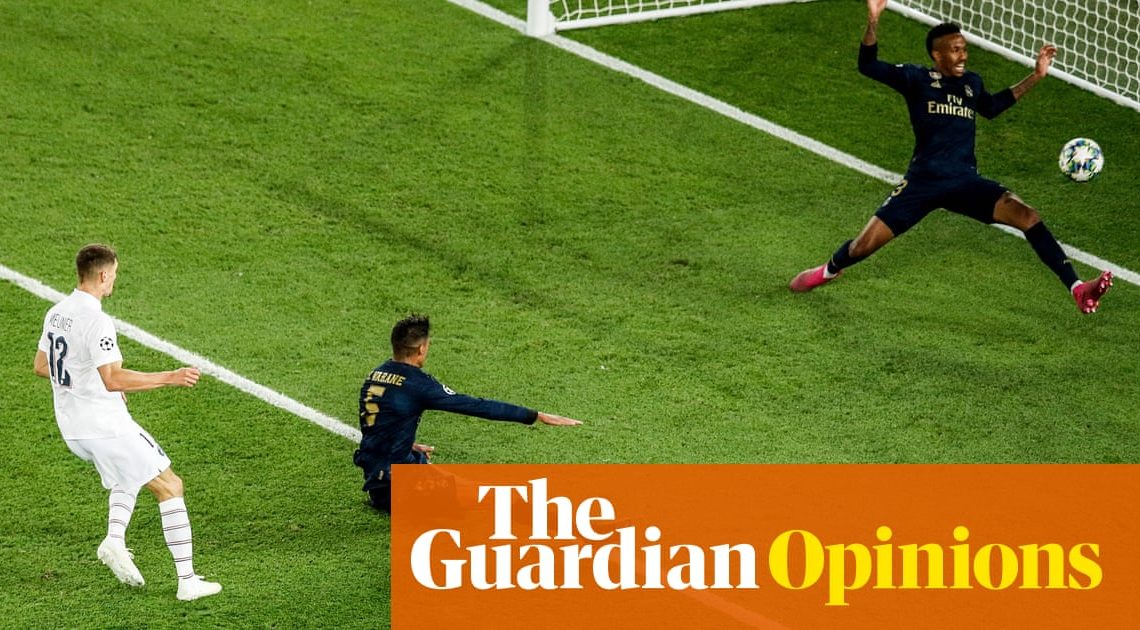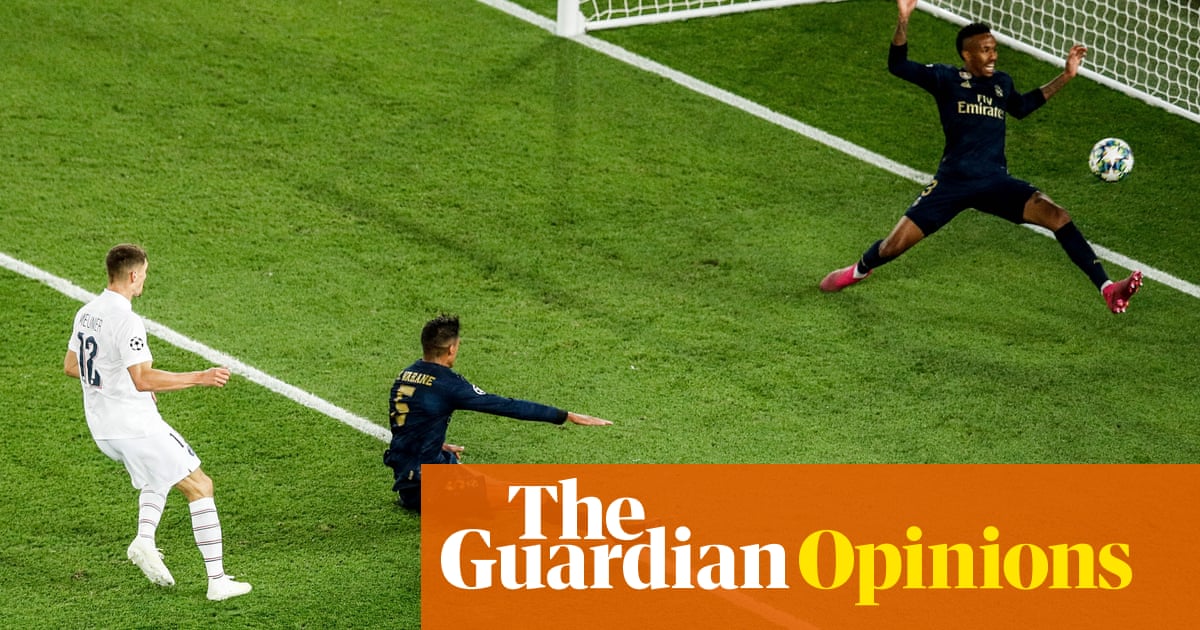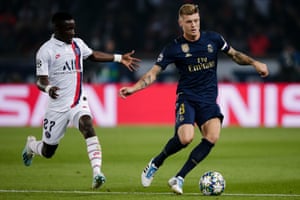
For decadent, deficient Real Madrid the problems start in midfield | Jonathan Wilson
September 26, 2019The team were incapable even of the basics against PSG and it is a wonder Spanish clubs have not exploited the weaknesses more

As Thomas Meunier and Juan Bernat capered through the open savannah that archaeologists believe was once populated by the Real Madrid midfield, the mind was drawn to another Parisian night two and a half years ago, when ngel Di Mara orchestrated an even more emphatic victory for Paris Saint-Germain over a Spanish side. As it turned out, that 4-0 win over Barcelona didnt turn out particularly well for PSG but, more generally, what on earth is going on with midfields in La Liga?
On a night when Atltico twice conceded goals on the break at home to Juventus, the issue seems particularly acute. Last season the big three Spanish sides leaked three or more in games against Liverpool (Barcelona); CSKA Moscow and Ajax (Real Madrid); and Borussia Dortmund and Juventus (Atltico). In each case the major problem was the same: a ponderous midfield being shredded in transition. There had been glimmers of the issue the season before, in Real Madrids defeat at Tottenham and Barcelonas embarrassing collapse in Rome, which itself had been foreshadowed by the problems theyd had against Chelsea in the previous round.
In that sense Di Mara, a player who carries the ball on the counter as well as anybody in world football, is kryptonite to a Spanish midfield or even, as Bayern found when Di Mara, still playing for Madrid, devastated them, to a midfield managed by a Spaniard. The sense lingers that Di Mara never quite gets the credit he deserves.
Although his contract demands were perhaps excessive, Madrid might have made more effort to keep hold of him had he been more obviously charismatic and not borne such a striking resemblance to Franz Kafka. Di Maras time at Manchester United was scuppered by the wider sweep of the clubs decline and struggles with settling in, exacerbated by a burglary at his home. With Argentina, he is a useful scapegoat, largely because he is almost always there, coaches liking his diligence even though the team, not unreasonably focused on Lionel Messi, rarely play in a way that would get the best out of him.
With PSG, Di Mara is overshadowed by the star quality of Neymar, Kylian Mbapp and Edinson Cavani. Not for the first time, it was apparent without the three on Wednesday how much better they are when the celebrity worship is toned down and they function as a team. That said, Madrid did everything they could to make it easy for them.
The one-two that released Bernat in the buildup to the first goal was neat, but was it really enough to bypass Dani Carvajal that straightforwardly? Raphal Varane was then drawn towards the full-back, leaving a huge gap for Di Mara to move into as der Milito, who had a dreadful game, failed to cover. Di Maras strike for the second was powerful and accurate but why was he afforded so much room five yards outside the box? These are basics of defending. By the time of the third, Madrids midfield had collapsed completely.

Drawing general conclusions is never without risk, and both Madrid and Bara have had problems refreshing ageing midfields (Frenkie de Jong should help), but there is a question of how both have been allowed to sink into such decadence. Why have La Liga sides not exploited more such obvious deficiencies in midfield? Perhaps the gulf in resources, and the psychological barriers that erects, are simply too great; perhaps towards the end of last season, opponents had begun to expose Madrid.
There may also, though, be a sense of the evolutionary wheel turning. The possession-oriented game of a decade ago has slowly yielded to something quicker and more rooted in the construction of rapid transitions. Success often breeds stagnation why change something that works? It may be that after so much success six Champions Leagues in the past nine years Spanish football has slipped back into the pack.
Given how profound Madrids issues appear, Bara and Atltico will be the real test of that. Zinedine Zidanes success as a manager, winning three successive Champions Leagues, always seemed a little freakish, the result less of any great tactical acumen important as his substitutions often were than of a talented squad that effectively ran itself, elevated by the goalscoring of Cristiano Ronaldo and capable of peaking at just the right moment.
The surgery Zidane demanded on his return has not happened and the result is a slow midfield that, with little support from a detached forward line, could not cope with a PSG side that, with Marquinhos, Idrissa Gueye and Marco Verratti together in the middle, played with real energy and aggression. Even in the good days, Casemiro sometimes struggled to hold the bridge alone. Here, with James Rodrguez weirdly uninvolved and Toni Kroos looking a decade older than his 29 years, he was overwhelmed.
Perhaps when Sergio Ramos returns from suspension, Madrid will do what they have in the past and raise themselves for the knockouts, borne by some deep-rooted muscle memory of past successes. But this was a troubling display, flaccid and unfocused. A bunch of ageing stars yoked loosely together for one last job may play well for some content producers but football still requires at least some zest, some organisation. This was a Madrid side seemingly incapable even of the basics.
PSG, meanwhile, shorn of their stars, looked a team at last.
Read more: http://www.theguardian.com/us

